Media: Journalism
Eva Gabriele Reichmann
Born in Silesia, Eva Gabriele Reichmann studied economics in Germany and, after fleeing the Nazis, in London. A prolific writer, especially after her retirement in 1959, Reichmann focused mainly on Judaism and the social history of German Jewry. She was awarded several medals for her contributions to democracy, freedom, and tolerance and died at the age of 101.
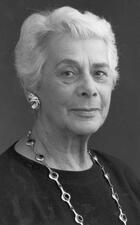
Esther Leah Medalie Ritz
Esther Leah Medalie Ritz defended human rights throughout the myriad conflicts of the twentieth century, from speaking out against fascism in the 1930s to participating in Israeli-Palestinian dialogue in the 1980s.
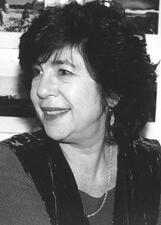
Lilly Rivlin
Lilly Rivlin is a documentary filmmaker whose films are centered around feminism, the Arab-Israeli peace process, Jewishness, and her family relationships. Rivlin’s films The Tribe (1984), Miriam’s Daughters Now (1986), and Gimme a Kiss (2000), all of which explore Jewishness and family, are among her best.
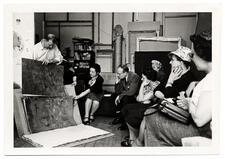
Colette Roberts
Colette Roberts devoted her life to increasing people’s understanding and appreciation of modern art. The success she earned as a gallery director, art critic, and educator influenced the art world of the mid-twentieth century in New York and Paris and throughout the world.
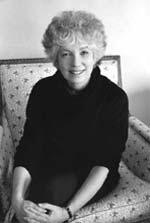
Anne Roiphe
A prolific journalist, essayist and novelist, Anne Roiphe is an American writer known for tackling issues of feminism and Jewish identity. Despite her sometimes controversial writings, Roiphe has become an important voice for secular Jews who, while perhaps uncomfortable with organized religion, nevertheless feel an attraction and a commitment to their Jewish heritage.
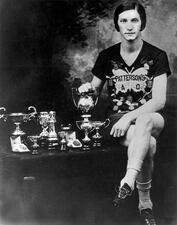
Fanny "Bobbie" Rosenfeld
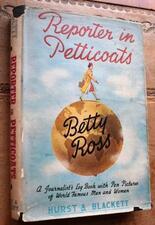
Betty Ross
Betty Ross was a journalist known for her international purview and interviews with celebrities. In the mid-1920s she traveled extensively through Asia, Europe, the Middle East, and Russia, gathering materials and interviewing celebrities. She was among the first journalists to conduct radio interviews.
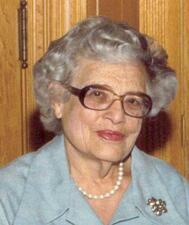
Mattie Rotenberg
The first woman and the first Jew to be granted a doctorate in physics at the University of Toronto, Mattie Rotenberg also founded Toronto’s first Jewish day school in 1929 to educate her five children. She went on to embark upon a successful second career in journalism.
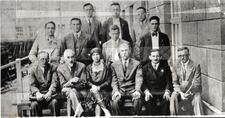
Anna Rozental
Anna Rozental belonged to the generation of Jewish labor activists who had already been active in the founding phase of the General Jewish Labor Bund under the Russian Empire and who were highly respected as “veterans” in the Polish Bund of the interwar period. From her youth on, Rozental’s life was closely tied to the Jewish labor movement in Vilna, where she died in Soviet custody during World War II.
Esther Jane Ruskay
Esther Jane Ruskay was a distinguished and outstanding writer and speaker in the Jewish community before the turn of the century. Her articles on Jewish life appeared in numerous newspapers, and a collection of her writings, Hearth and Home Essays, was published in 1902 by the Jewish Publication Society.
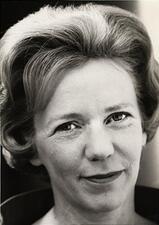
Aline Saarinen
Aline Saarinen first gained notoriety as an art critic and served as an associate art editor at the New York Times. Her career in art criticism segued into a career in television as a popular on-air personality. Saarinen’s presence on television led to her appointment as chief of the National Broadcasting Company’s Paris news bureau, the first woman to hold a position of this type.
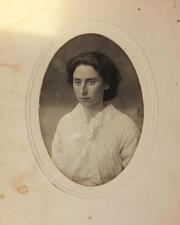
Sarah Goldblatt
Sarah Goldblatt was a staunch advocate of the Afrikaans language of South Africa. Despite learning the language later in life, she devoted herself to her adopted tongue, publishing multiple books in Afrikaans and serving on the editorial board of an Afrikaans newspaper. Trained as a teacher, she also taught the language to students around the country.
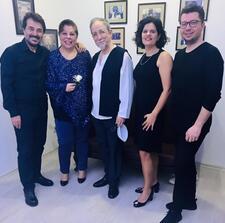
Karen Sarhon
Karen Gerson Sarhon, founder and vocalist of the Sephardic music group Los Pasharos Sefaradis, is coordinator of the Sephardic Culture Research Center in Istanbul, Turkey, and chief editor of El Amaneser, the world's only newspaper wholly in Judeo-Spanish/Ladino. She continues to produce innovative projects for the preservation and promotion of Sephardic culture and language.
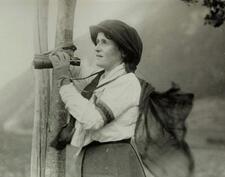
Alice Schalek
Alice Schalek first entered the public sphere at the turn of the century as the author of a well-received novel, published under the male pseudonym Paul Michaely. The first woman in Austria to become a career photojournalist and travel writer, and the first and only female member of the Austrian Kriegspressedienst (war information unit) during World War I, Schalek paved the way for careers in both photography and journalism for other women.
Dorothy Schiff
Dorothy Schiff led many lives, from debutante to social reformer, but she is best remembered as the publisher of the New York Post, the first woman to run a New York newspaper. Her publishing philosophy was simple: The Post must avoid “narrow-mindedness, prejudice, and all the things it is the business of liberals to fight.”
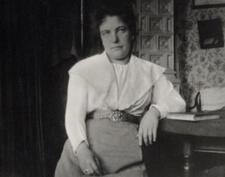
Therese Schlesinger-Eckstein
Therese Schlesinger’s life was characterized by her lifelong passion for learning and her endeavor to improve the plight of working-class women. She was a dedicated feminist who was inspired by the ideals of socialism, struggling to combine both of these political passions within the Austrian Social Democratic Party.
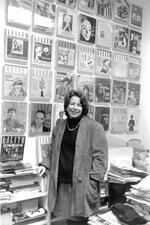
Susan Weidman Schneider
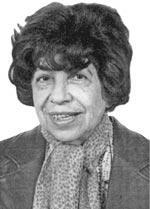
Alice Schwarz-Gardos
As a journalist, editor and foreign correspondent, Alice Schwarz-Gardos wrote articles for German-language newspapers in Israel and Europe from an explicitly Zionist and patriotic point of view. Besides her journalistic work, Schwarz-Gardos published eleven books in German.
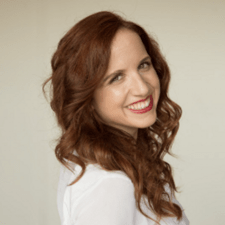
Stav Shaffir
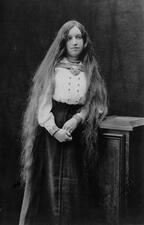
Havvah Shapiro
“Our literature lacks the participation of the second half of humanity.” Thus proclaimed the Hebrew writer Hava (Eva) Shapiro (1878-1943) in her 1909 feminist manifesto, the first ever in the Hebrew language. She was the most prolific female Hebraist of her era to remain in the Diaspora and the first woman ever to have kept a diary in Hebrew.
She'erit ha-Peletah: Women in DP Camps in Germany
Family played an important role in the lives of Holocaust survivors in DP (displaced persons) camps – in 1947, the birth rate in DP camps was one of the highest in the world. Women served as teachers and eager students, and they were active in the effort to open immigration to Palestine.
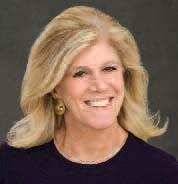
Lynn Sherr
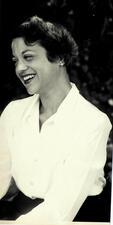
Wilma Shore
Wilma Shore was a writer and teacher most active between the 1940s and the 1960s. She lived at various times in Los Angeles and New York City, settling finally in New York City. Involved with left-wing political activity, she and her husband were blacklisted during the House Committee on Un-American Activities hearings.
Rose Shoshana
Rose Shoshana began her acting career in the Yiddish theater world, playing Manke in Got fun Nekome in 1908. She went on to perform across Europe, America, and Asia. When she arrived in New York in 1946, she began a career as a novelist, writer, translator, and journalist at the Forverts.
Lillie Shultz
Lillie Shultz poured her boundless energy into all aspects of her life. She was a journalist, a Zionist, a champion of the oppressed, a skilled administrator, and a businesswoman.


